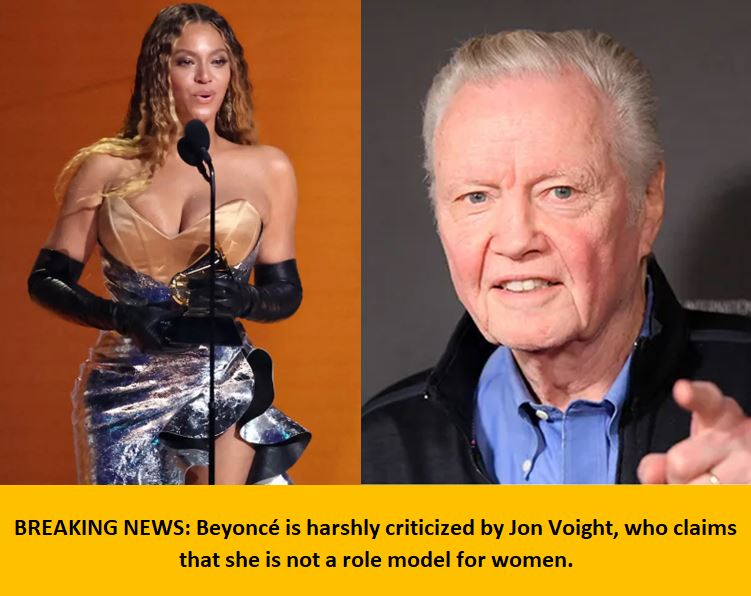In a highly publicized critique, actor Jon Voight has expressed his disapproval of Beyoncé, claiming that the global superstar is not a suitable role model for women. The comments, which have sparked widespread controversy, were made during an interview in which Voight was asked about his views on modern celebrities and their influence on society.

Voight, known for his outspoken conservative views, did not mince words when discussing Beyoncé’s public persona and influence, stating, “She may have incredible talent, but her actions and the messages she promotes are not what I would want young women to look up to.” The actor specifically took issue with Beyoncé’s bold and often provocative performances, her lyrics, and the themes of female empowerment and sexuality that she embraces in her music.
While Beyoncé has been hailed by many as an icon of strength, independence, and empowerment, Voight seemed to suggest that her overt expressions of sexuality and confidence are not appropriate examples for young women. “What’s being glorified today in pop culture, especially by celebrities like her, is not the kind of behavior or values that should be promoted to the next generation,” Voight continued. “True role models should be focused on dignity, grace, and responsibility.”
The criticism has ignited a fierce debate across social media and entertainment circles. Beyoncé’s supporters quickly came to her defense, highlighting her achievements not only as a groundbreaking artist but also as a philanthropist and advocate for social justice. Many pointed to her efforts to address issues like racial inequality, women’s rights, and body positivity as examples of the positive influence she has had on her millions of fans worldwide.
“Beyoncé has always used her platform to inspire and uplift women,” said one supporter. “She has empowered women to take pride in who they are, regardless of societal expectations, and has been unapologetic in championing both her talents and her values.”
On the other hand, some critics have echoed Voight’s concerns about the messages conveyed in certain aspects of Beyoncé’s work. These critics argue that her more sexually charged music and performances may send conflicting messages to young audiences, particularly in a time when discussions about modesty, respect, and appropriate conduct are at the forefront of cultural conversations.
Beyoncé has yet to publicly respond to Voight’s comments, but her legacy as one of the most influential and successful artists of her generation remains largely unaffected by the criticism. Over the years, Beyoncé has been recognized for her ability to balance her career with her role as a mother and wife, and her influence extends far beyond just her music. She has become a symbol of empowerment, self-expression, and resilience, with many viewing her as a positive role model for women of all ages.
While Voight’s comments have added fuel to the ongoing debate about celebrity influence and responsibility, they also raise larger questions about the evolving definition of what it means to be a “role model” in today’s complex cultural landscape. As society continues to navigate the intersection of fame, social media, and values, Beyoncé’s multifaceted career will likely remain at the heart of discussions about the role of celebrities in shaping public perceptions.
This public clash between Voight and Beyoncé is likely to continue to spark debate as more people weigh in on the nature of celebrity influence, the responsibilities of public figures, and what it means to be a positive role model in the modern world.
Leave a Reply